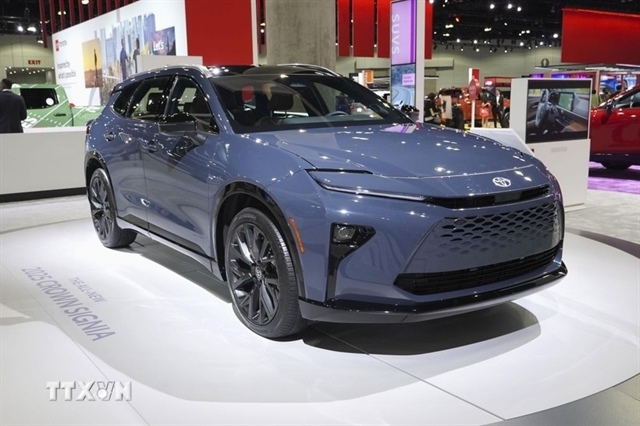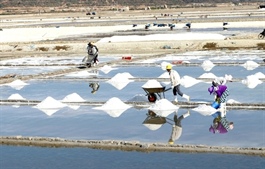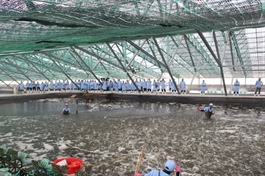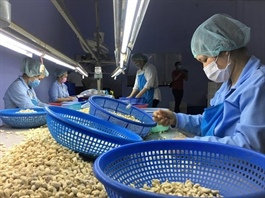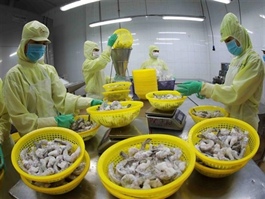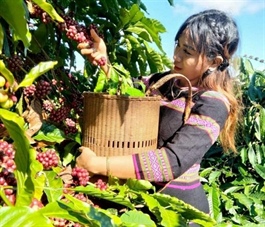Vietnamese rice prices up after rice export ban of India, Russia, UAE
Vietnamese rice prices up after rice export ban of India, Russia, UAE
Rice export prices of Việt Nam have reached their highest in 12 years after a series of countries restricted rice exports.
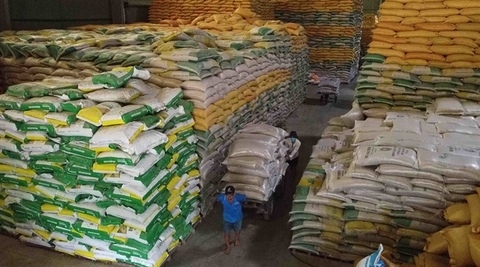
A store of export rice. The price of Việt Nam's 5 per cent broken rice has increased to US$550-575 per tonne. — VNA/VNS Photo Vũ Sinh |
The price of Việt Nam's 5 per cent broken rice has increased to US$550-575 per tonne, the highest since 2011. Early last week, it was just $515-525 per tonne.
According to domestic traders, the reason for the higher export price of rice is due to many businesses purchasing rice from other countries after India's ban on exporting rice, followed by similar moves from the United Arab Emirates (UAE) and Russia.
At present, China, the Philippines and Indonesia are stepping up imports of Vietnamese rice.
Meanwhile, many international traders believe that the price of rice for export in Asia, especially from Thailand and Việt Nam, can increase to up to $600 per tonne, or even to $700 per tonne for high-quality rice.
Việt Nam’s average rice export price for the first six months of 2023 reached $539 per tonne, a 10.2 per cent increase over the same period in the previous year, according to the General Department of Customs.
A trader in HCM City said that exporters expect prices of the grain to rise further after India's move to restrict rice exports.
Dương Đức Quang, deputy general director of the Commodity Exchange of Việt Nam (MXV), said that with concerns about a serious drop in supply due to the impact of El Nino, the rice prices are predicted to increase by years end.
In the worst-case scenario, if El Nino continues to cause damage to the second rice crop of the year in Asian countries, high prices will increase by 15-20 per cent, Quang said.
Meanwhile, Thailand’s 5 per cent broken rice prices also increased to $605-610 per tonne on July 27, the highest in the last 11 years.
On July 20, India issued a ban on rice exports, aiming to ensure adequate domestic availability at reasonable prices. The ban pushed its prices to $445-450 per tonne - a record high in the last five years and a half.
On July 28, the UAE announced it will stop exporting rice for four months. This regulation took effect immediately for all types of rice. The UAE also banned the re-export of rice imported from India after July 20.
The next day, the Russian government also issued a notice saying that it is banning the export of raw and processed rice until December 31 to maintain stability in the domestic market.
Russia grows rice mainly in the southwestern regions of the country, near the borders with Azerbaijan, Georgia and Kazakhstan.
According to the Việt Nam Food Association, rice prices in the domestic market have also increased sharply.
For example, the price of 5 per cent broken rice is VNĐ12,500 ($0.53) per kilo. The average price is VNĐ12,304 per kilo, an increase of VNĐ754 year-on-year.
On July 31, Việt Nam's Ministry of Industry and Trade said that India will continue to ban the export of de-oiled rice bran extraction, effective from July 28 until November 30, after having a ban on the export of non-basmati white rice, effective from July 20.
According to the Việt Nam Trade Office in India, this decision was due to the significant increase in the prices of milk and dairy products as well as animal feed in India. De-oiled rice bran extraction is a major ingredient in livestock, poultry and fish feed.
Việt Namese enterprises import large volumes of Indian de-oiled rice bran extraction for animal feed processing as it's cheaper than Việt Namese rice bran.
In the first five months of the year, India exported 288,000 tonnes of de-oiled rice bran extraction, down 21.54 per cent over the same period of last year. Of which, about 155,900 tonnes were exported from India to Việt Nam, accounting for 54.13 per cent of India's total exports.
The Việt Nam Trade Office in India said that India's ban on exporting rice bran extraction is effective immediately and will affect export contracts of this commodity that are not yet delivered. Việt Nam imports a large amount of this product from India, so Vietnamese importers may face many risks.
Vietnamese firms need to quickly work with partners in India to see the status of goods and solve problems based on the signed contracts.
The Ministry of Industry and Trade has also reported that in the first five months of the year, Việt Nam imported a total of 367,500 tonnes of rice from India, up 31.76 per cent over the same period, ranking eighth among Indian rice importing countries.






